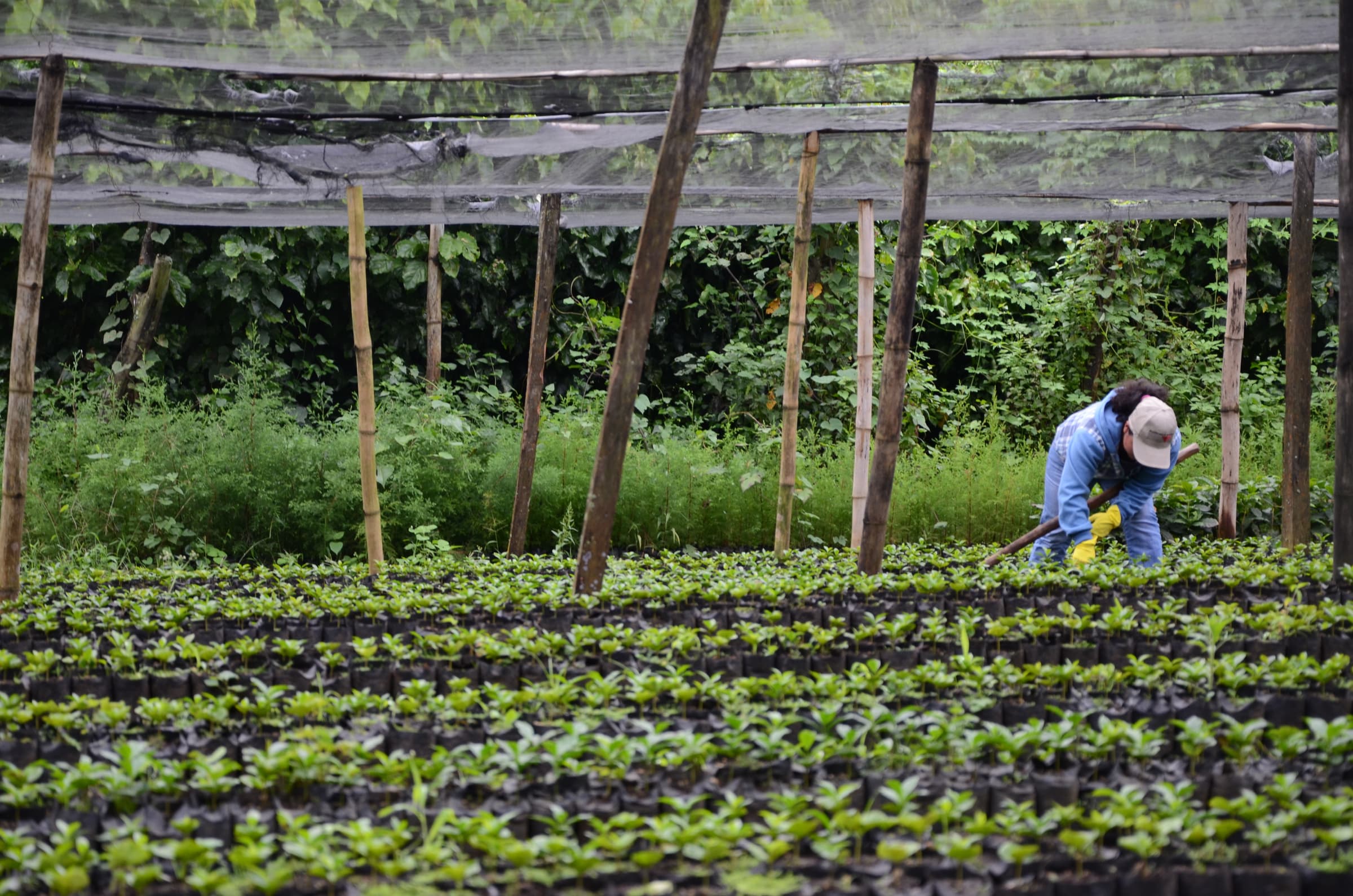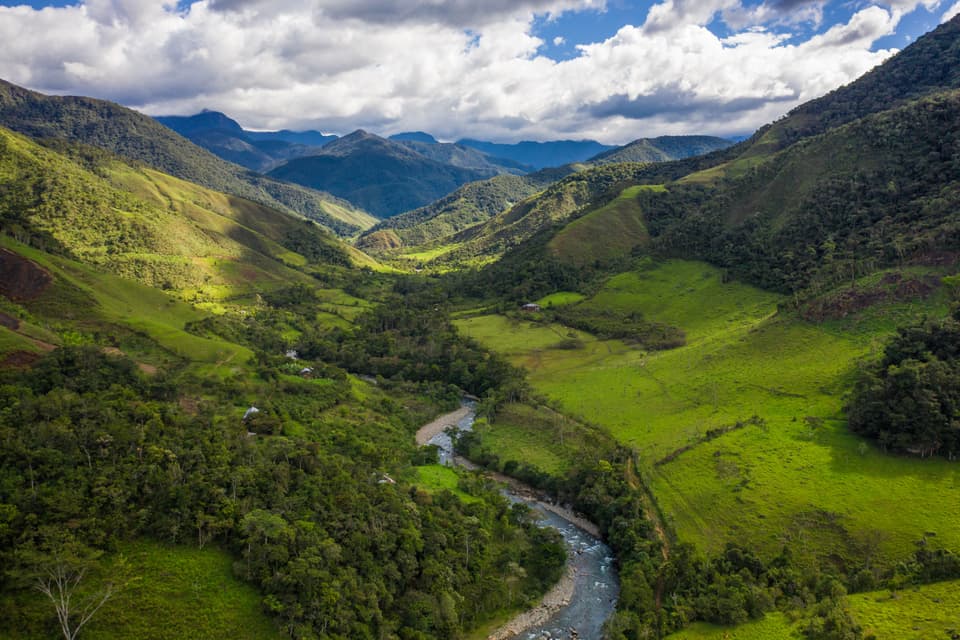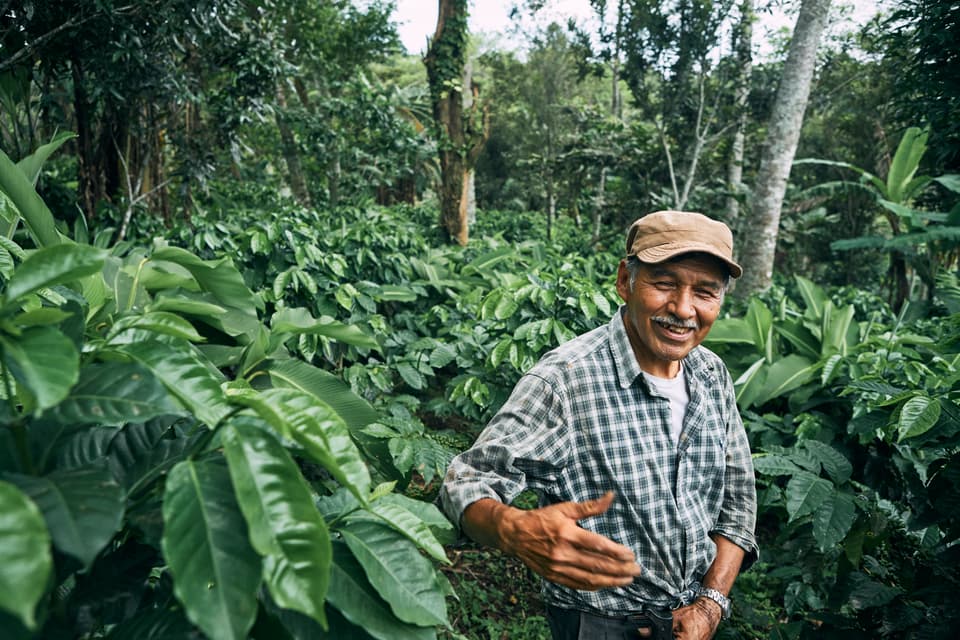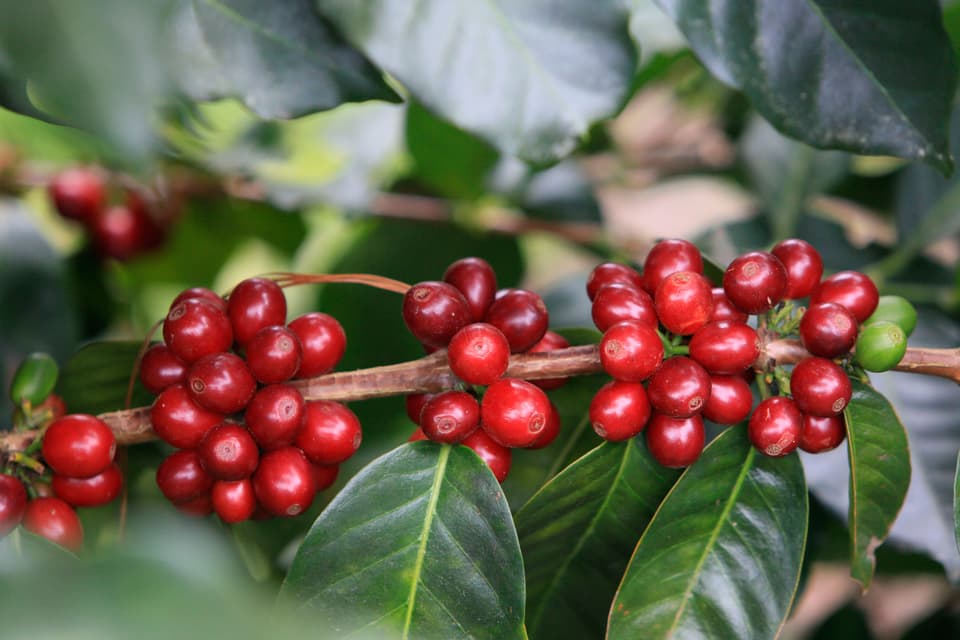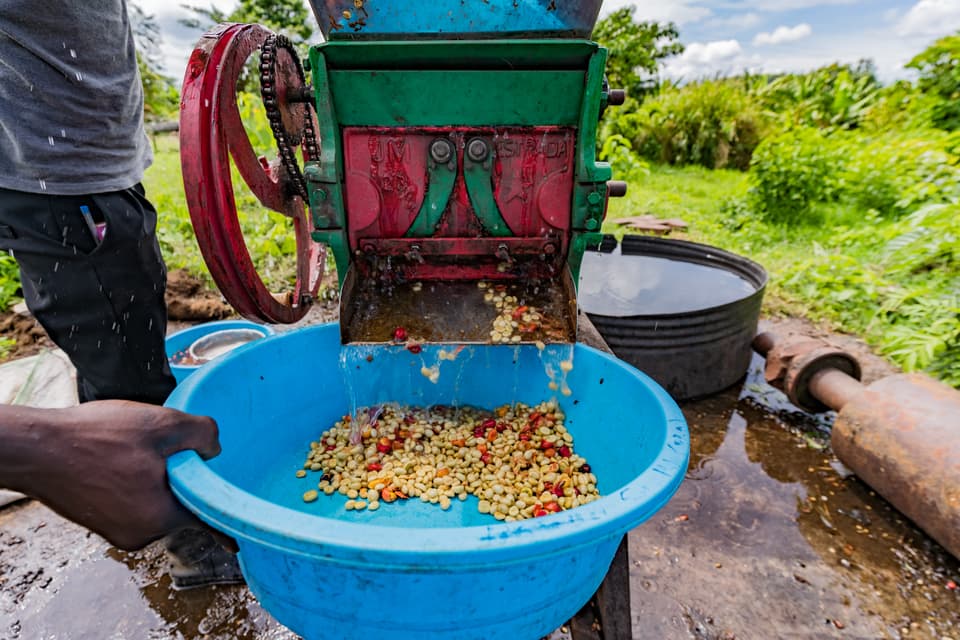Seed Supply Quality Assurance
The problem
Worldwide, most farmers do not have access to high-quality coffee plants, which exposes them to tremendous unnecessary risks. Many coffee nurseries are in remote areas and primitive, producing questionable varieties of questionable plant health. In most cases, these nurseries take or buy seeds from local farmers or institutions but do not take into consideration genetic traceability and purity of the seed—in other words, they often don’t know for certain what variety they are selling. Training is limited or nonexistent for most nursery owners; most have scarce access to technical assistance. Additionally, a majority of seed producers, nurseries, farmers and supply chain actors do not have the needed tools to identify and trace varieties as they move from seed gardens to nurseries, from nurseries to farmer fields, from the field to the port, and from there into roasting drums around the world.
Solutions
Improving seed supplies in key countries. With the support of WCR member companies and public sector donors, WCR has undertaken multiple projects to assess and enhance the quality of seed supplies for member company supply chains, including:
- Peru: In collaboration with eight Peruvian organizations, WCR has established 10 new, genetically verified seed lots to increase the availability of two high-performing varieties for farmers—IPR107 and Paraneima. The new seed lots will produce enough seed to grow 4 million trees annually as early as 2028.
- Uganda: WCR is working with partners across Uganda to scale up propagation of improved planting material and increase access to high quality varieties. In 2024, WCR moved 90,000 disease-resistant trees into farmers’ hands in collaboration with the Uganda Ministry of Agriculture, Animal Industries and Fisheries (MAAIF)’s Coffee Department (formerly the Uganda Coffee Development Authority, UCDA), and UGACOF. These trees were produced by 10 new farmer-led Robusta nurseries, which together will be able to deliver 100,000 high quality trees each year. WCR also established 10 new arabica seedlots, together capable of producing 50,000 high-quality trees each year for local smallholder farmers, and trained more than 100 arabica nursery operators and seed producers across three coffee regions to ensure high quality trees get into the hands of more farmers in Uganda, a country that is rapidly planting more coffee. Together with our partners at Uganda’s National Agricultural Research Organisation (NARO), we convened national stakeholders and assisted the development of a roadmap of priority activities to enhance the quality of seeds and plants in the country to support Uganda’s national ambition to quadruple output.
- Honduras: In 2024, WCR supported partners in Honduras to eliminate genetic contamination points from commercial seed lots, with the support and involvement of IHCAFE, the country’s national coffee institute. In 2024, we evaluated 13,160 samples collected from 8 seed lots (varieties: Lempira, Parainema, Anacafe 14
and Catigua MG2). - Guatemala: In 2024, WCR supported partners in Guatemala to eliminate genetic contamination points from commercial seed lots, with the support and involvement of Anacafe, the country’s national coffee institute. We evaluated 7,520 samples of Anacafe 14 collected from nursery seedlings; confirming plants are being used to establish a foundation seed lot for Guatemalan farmers.
Sourcing quality planting material. WCR has conducted assessments of seed suppliers in limited countries to determine if their seed and planting material supplies are genetically conforming (e.g, the variety is what it is supposed to be), and publishes lists of suppliers that have demonstrated high performance.
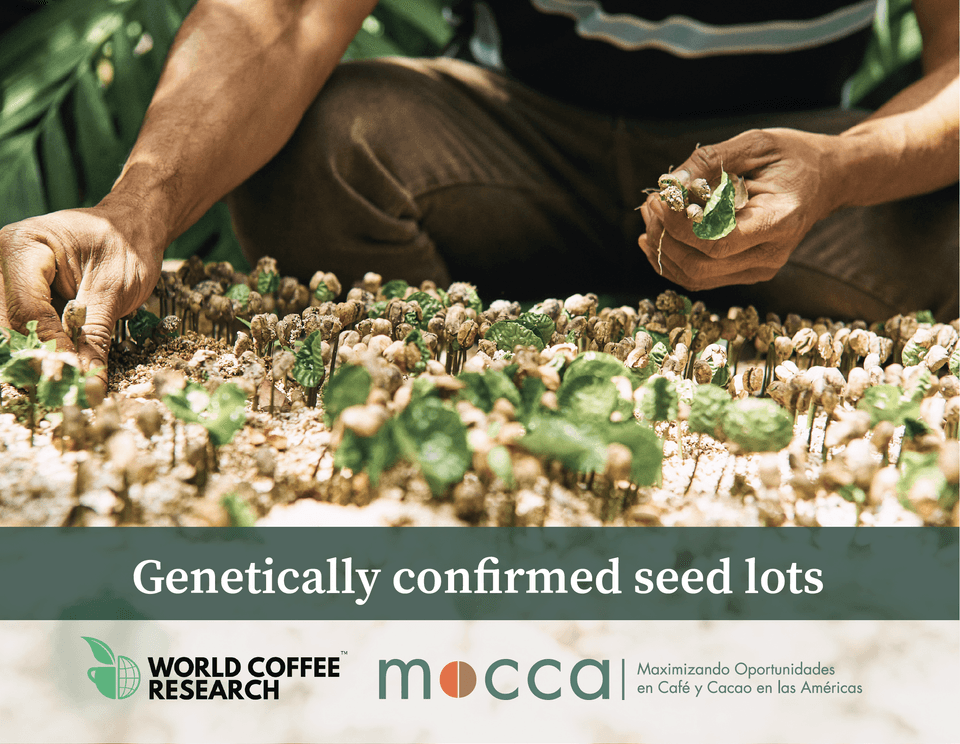
Genetically confirmed seed lots
Genetic traceability tools—low-density SNP panel. Recent technological advances have created accurate, repeatable, inexpensive, and rapid options for the genetic identification of plants. WCR has enabled the creation of commercial genotyping services for arabica variety authentication, which are available through Agritech. This is an ISO-certified service that can be utilized by the coffee community for high-quality analysis and timely delivery.
This method of variety authentication analyzes the presence of single-nucleotide polymorphism (SNP) markers, tiny genetic variations dispersed through a plant’s DNA sequence that can be used to create a genetic “fingerprint” for the rapid and accurate authentication of specific coffee varieties. SNP markers are accurate and can be analyzed quickly and at much lower cost than other genetic markers. WCR has developed a low-density SNP panel of ~50 markers for arabica variety identification and has made the database available in the public domain. This is especially important for seed providers, who mass produce seed or plants for farmers, and/or for investors in renovation programs that want to be assured the correct varieties are being produced for farmers.
Commercial genotyping services for variety authentication are available through Agritech. For pricing and/or to use this service, contact Intertek Agritech directly by emailing agritech@intertek.com.
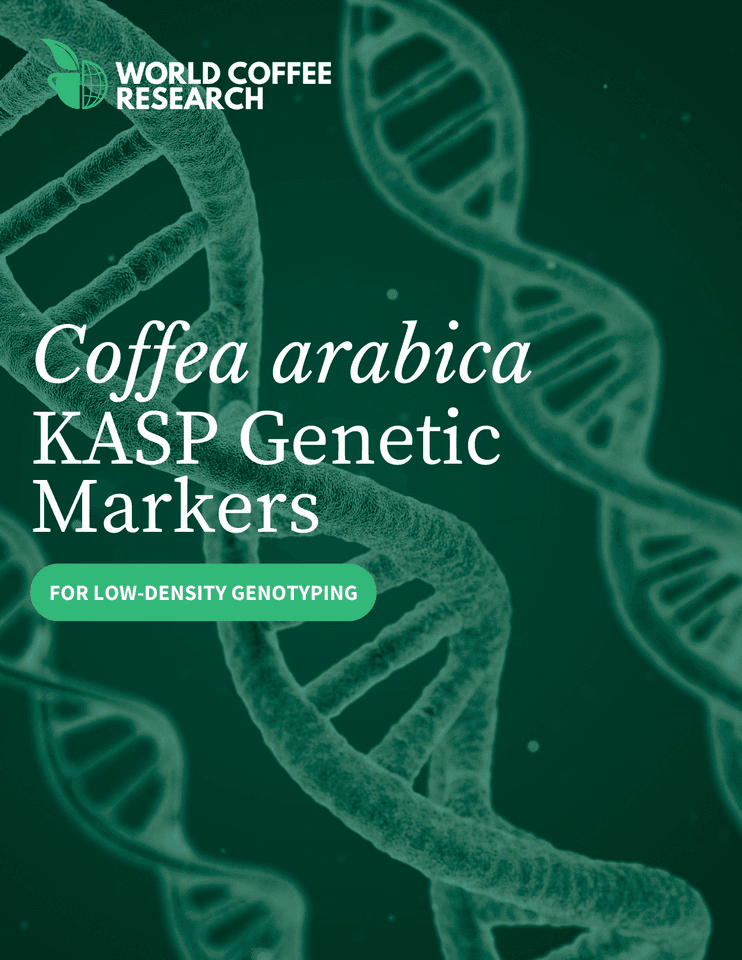
Coffea arabica KASP genetic markers for low-density genotyping
Assessment. To build a strong and professional coffee seed sector, WCR assists key countries to evaluate their seed systems, and identify gaps and roadmaps for future investment. In addition, we support individual seed suppliers to assess their genetic purity and variety traceability systems using new, low-cost genotyping tools (see above).
Best practice manuals and supporting videos. To fill an urgent gap in knowledge about best practices, from 2019–2021, WCR developed a series of three manuals of best practices with supporting videos for producing genetically pure and healthy seedlings, as well as on good business practices, tailors for nurseries both small and large. These manuals are accessible in Spanish, English, and French. Supporting videos are available in Spanish, English, French, Luganda, and Lugisu. In 2023, WCR developed a series of five complementary videos to support Robusta Clonal Coffee Nursery Management and a manual on the use of grafting practices for Robusta. All of these resources are freely available to all (see below).
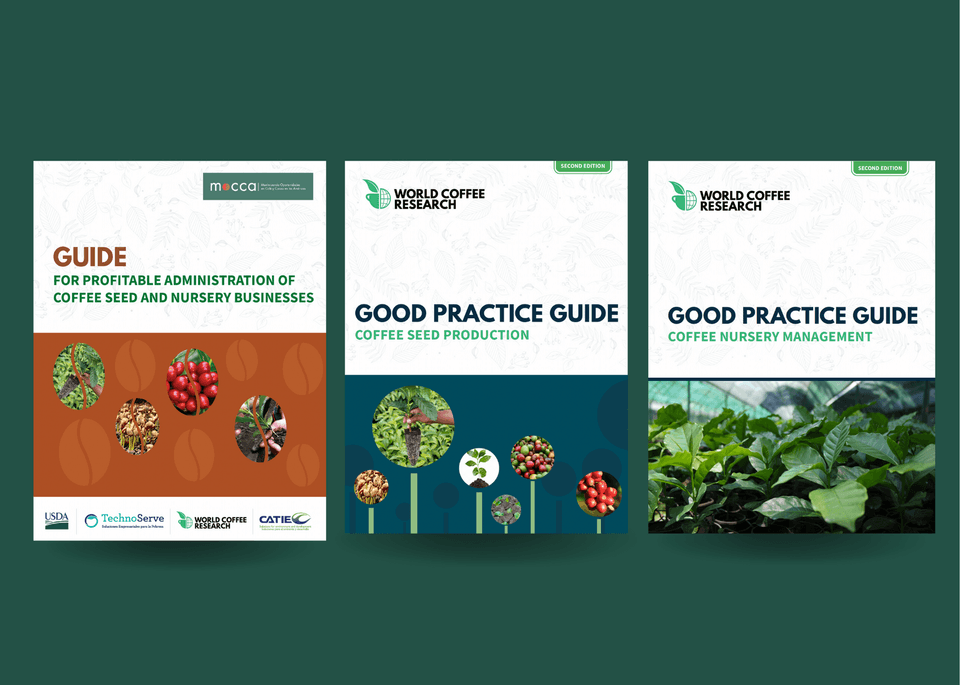
Resources for coffee nursery management
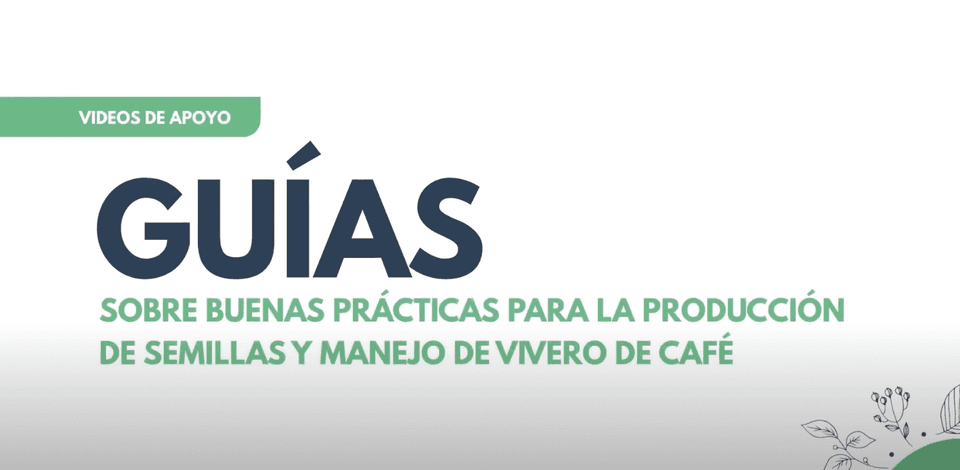
Good Practice Guides: Supporting Videos
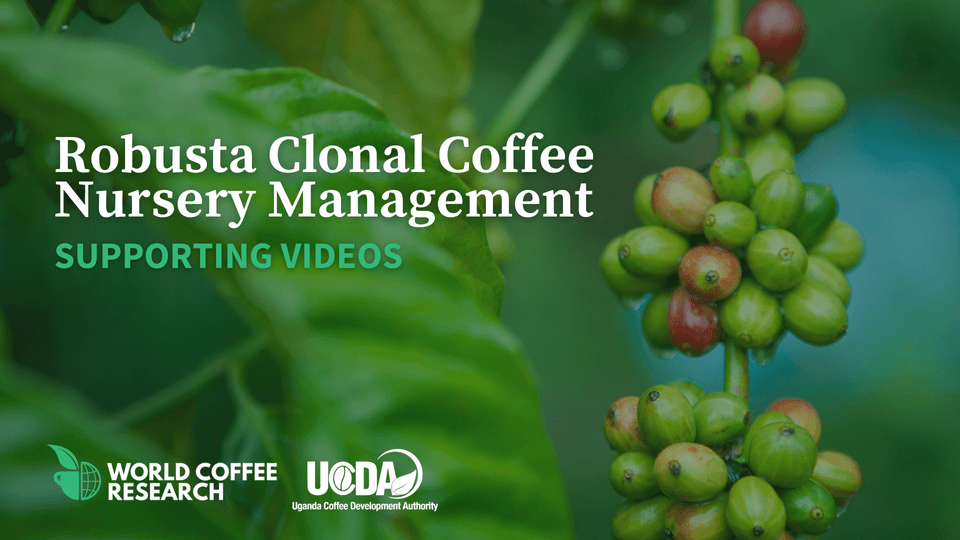
Robusta Clonal Coffee Nursery Management: Supporting Videos
The impact
Supporting the professionalization of the coffee nursery sector globally and putting better tools in the hands of seed producers and nurseries worldwide allows expanded access to improved, resilient varieties for smallholders, leading to increased production and profits. Such steps leading to increased production and profits, creating value for farmers.
